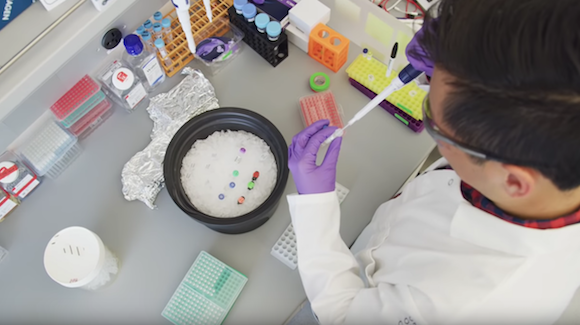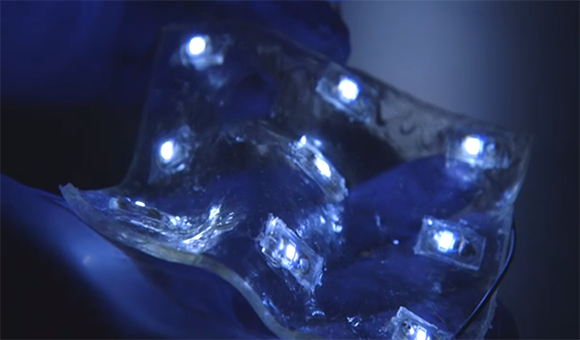Bodily fluids create a very inhospitable environment for implants with electronic components. Doctors have long believed that a hydro-gel container could overcome much of this incompatibility, but the gel-like compounds available today are not very reliable in terms of elasticity and strength. That is part of the reason that scientists at the Massachusetts Institute of Technology have developed a new type of hydrogel that is much stronger and much more pliable than current hydro-gel formulations.
Traditional implants that house electronics and sensors are made of plastic or silicon, which are semi-rigid and not ideal for applications inside of our bodies. This new water-based polymer hydrogel can easily flex with any movement a person might make, in addition to being a practical shell for small electronic sensors and chips. FDA approval might still be a few years away, but the technology makes the prospect of fitting patients with diagnostic and life-saving implants more viable than ever before.
Click here to read the article on Bloomberg Technology.






